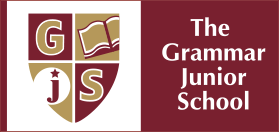CLASS 4
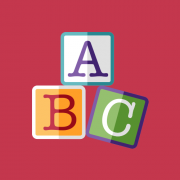
ENGLISH
Reading
Pupils are taught to develop positive attitudes to reading by being exposed to play scripts, poems and fiction and non-fiction books. They read aloud with intonation, volume and action and with fluency. Pupils participate in discussions about the key themes fo their reading books.
Spelling
Pupils are taught to use prefixes and suffixes, to spell homophones and homonyms, often misspelt words and to place the possessive apostrophe accurately. They learn to write from memory simple sentences, dictated by the teacher. Pupils are encouraged to use the words taught in their writing to enhance their understanding of the new words.
Composition
Pupils are taught to plan their writing, discuss and record ideas, draft and write, organize paragraphs, evaluate and edit. They learn to use structure and opening sentences. Pupils are exposed to different writing styles such as fiction, non fiction, narrative, descriptive, poetry and letter writing.
Comprehension
Pupils are given various passages to improve their understanding of a text. They learn to ask and answer questions correctly, predict what might happen and to identify main ideas and participate in discussion. Pupils are introuduced to new vocabulary.
Grammar
Pupils are taught to expand sentences by adding adjectives and/or adverds. They learn to use punctuation correctly in their writing or in a given text. Pupils are able to categorize nouns and learn to use pronouns, adjectives, verbs, adverbs and prepositions appropriately. They learn to use the present simple, present continuous, past simple, past continuous and present perfect form of verbs.
MATHEMATICS
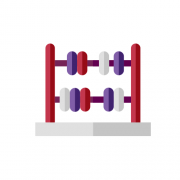
Number and Place Value
Pupils are taught to recognise the place value of each digit in a million. Ther learn to order and compare numbers up to a million and to round any number to the nearest 10, 100, 1,000, 10,000 and 100,000.
Multiplication and Division
Pupils are taught to recall multiplication and division facts for multiplication tables up to 12 × 12, multiply two-digit and three-digit numbers by a one-digit number and two-digit numbers using formal written layout. They can solve problems involving multiplying and dividing.
Measurement
Pupils are taught to convert between different units of measure, measure and calculate the perimeter, find the area and volume of a shape.
Geometry – Properties of Shapes
Pupils are taught to classify geometric shapes, including quadrilaterals and triangles, identify acute and obtuse angles and compare and order angles and to identify lines of symmetry in 2-D shapes.
Addition and Subtraction
Pupils are taught to add and subtract numbers with up to 4 digits using the formal written methods of columnar addition and subtraction where appropriate. They also learn to solve addition and subtraction two-step problems in contexts, deciding which operations and methods to use and why.
Fractions and Decimals
Pupils are taught to recognise equivalent fractions, count up and down in tenths and hundredths, add and subtract fractions with the same and different denominator, write decimal equivalents of any number of tenths or hundredths, find the effect of dividing a one- or two-digit number by 10 and 100, compare and round decimals. They can also solve problems involving increasingly harder fractions and money problems.
Time
Pupils are taught to read, write and convert time between analogue and digital 12- and 24-hour clocks and solve problems involving converting from hours to minutes; minutes to seconds; years to months; weeks to days.
Statistics
Pupils are taught to interpret and present discrete and continuous data using appropriate graphical methods, including bar charts and time graphs.
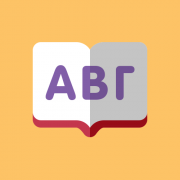
GREEK
The Greek lesson in the Grammar Junior School is of equal importance to the English lesson for the Greek-speaking pupils. We follow the guidelines set and use the books provided by the Cyprus Ministry of Education and Culture. The objective of the lesson is to learn the Greek language through Reading, Writing, Grammar and Vocabulary. Through the Greek lesson our pupils also become familiar with and learn to appreciate Cyprus history, culture and traditions.
In class 4, pupils are taught grammar and sentence structure as well as the skills of reading comprehension. They engage in productive conversations and they are encouraged to express their feelings using appropriate vocabulary.
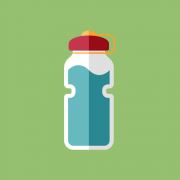
PHYSICAL EDUCATION
Pupils are taught to collaborate and compete adhering to ‘fair play’, to run, jump, throw and catch and play competitive games such as basketball, football, baseball and dodge-ball. They also learn to swim competently, with confidence and to use a range of strokes including front crawl, backstroke and breaststroke. They develop flexibility strength and technique.

GEOGRAPHY
Pupils are taught about, map scales, symbols, directions, village life and settlements, farms and food, weather and climates around the world, life in different countries, the environment and the geography of cyprus. They learn to compare and contrast their own experiences and with others all over the world.

HISTORY
Pupils are taught about the history of cyprus from the neolithic age with special emphasis on the ancient settlement of khirokitia to the byzantine empire. They also learnt about the history of ancient greece, the myths of the greek gods, the philosophers and the idea of democracy.

SCIENCE
Living Things and Their Habitats
Pupils are taught to explore and use classification keys to help group, identify and name a variety of living things in their local and wider environment and recognise that environments can change and that this can sometimes pose dangers to living.
Animals
Pupils are taught to construct and interpret a variety of food chains, identifying producers, predators and prey.
Forces and Magnets
Pupils are taught to observe how magnets attract or repel each other and attract some materials and not others.
States of Matter
Pupils are taught to compare and group materials together, according to whether they are solids, liquids or gases and identify the part played by evaporation and condensation in the water cycle and associate the rate of evaporation with temperature.
Sound
Pupils are taught to identify how sounds are made, recognise that vibrations from sounds travel through a medium to the ear and find patterns between the pitch of a sound and features of the object that produced it.

MUSIC
Pupils are taught to play a musical instrument with confidence, understand musical notations, appreciate a wide range of music and learn about the history of music. They are encouraged to join our school choir, the orchestra and to perform solo.
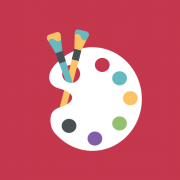
ART
Pupils develop their techniques and the use of materials with creativity using pencil, charcoal, paint and clay. They learn about great artists in history.
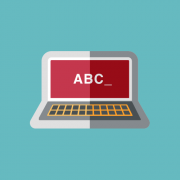
COMPUTERS
Pupils follow the six-year Funecole Programme which is endorsed by Cambridge International Examinations. Pupils are taught the principles of information and computation; how digital systems work and how to put this knowledge to use through programming so they become active participants in a digital world.

STEM
STEM (Science, Technology, Engineering, Mathematics) represents a blended learning, project-based curriculum. Students are actively engaged in hands-on minds-on activities with an application to the real world. Problem solving, critical thinking, collaboration, research, observation, knowledge construction and self-regulation are encouraged in every lesson.
Pupils are taught about design process, are introduced to robotics, programming, coding and algorithms, they build models using motion sensors, they use tactile readers, understand basic principles of earthquake engineering and design, use the tune booster, Ear Gongs and the 3-D printer.
